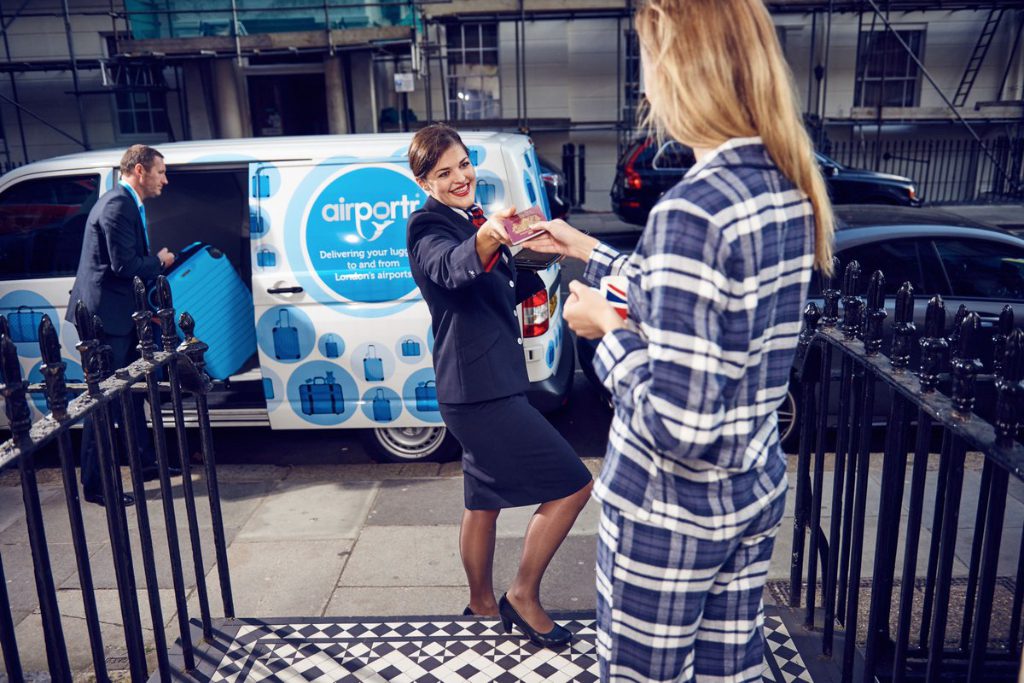Skift Take
Investors have bet on some innovative business models. AirPortr has hand-delivered about 100,000 bags from homes to airports, lifting a worry off the hands of Londoners as they pass through airport security. PaulCamper is an Airbnb for RVs. Meanwhile, SpaceBox converts spare hotel rooms into video game halls and other social zones for college students.

Travel Startup Funding This Week
Each week we round up travel startups that have recently received or announced funding. Please email Travel Tech Reporter Justin Dawes at [email protected] if you have funding news.
This week, travel startups announced more than $30 million in funding.
>>AirPortr, which checks in and delivers bags for flyers, has closed its latest round of funding. It raised $8.6 million (£7.1 million) in a Series A.
Stobart Group and Hargreave Hale VCT (part of Canaccord Genuity Funds) led the round. Stobart’s chief operating officer joined AirPortr’s board.
Here’s how Airport’s service works: A passenger checks in online. The company collects the bags from their doorstep after confirming the person’s identity. The driver puts the bag in a coded, tamperproof, and trackable security bag, the company said. The driver delivers the luggage to the airport, where they check in the bag.
AirPortr has handled 113,251 bag shipments. Two years ago, the startup landed British Airways as a customer. It also works with Virgin Atlantic, American Airlines, and other carriers. This year, EasyJet began offering the AirPortr service at London’s Luton airport.
“Business is seeing really good year-over-year growth,” said founder and CEO Randel Darby. “This year we expect airline revenues to double. We plan to scale the product to become a network proposition with our airline partners.”
AirPortr has 15 workers at its London headquarters. It has about 30 others handling operations, customer support, and logistics.
>>PaulCamper, a site for booking recreational vehicles, has raised new financing. It has closed a $7.8 million (€7 million) Series A.
Adevinta, a global online classifieds company, led the round. FJ Labs and All Iron Ventures participated too.
Europeans rent and lend 5,500 motorhomes, trailers, and camper vans on PaulCamper. Since its founding in 2013, the startup has enabled more than a half million rental nights.
The Berlin-based company covers Germany, Austria, and the Netherlands. It faces smaller rivals Camptoo, GoBoony, ShareACamper, and Yescapa.
>>SpaceBox, a Chinese travel startup, has raised about $7.1 million (50 million yuan). A mix of undisclosed investors participated in the Series A round.
SpaceBox makes over select rooms in hotels. Then it rents the rooms by the hour to young people looking for spaces to socialize and play video games. More than 30 hotels take part, offering more than 1,000 rooms in total.
The company signs up hotel franchisees near universities and commercial districts. It vets hotels to meet standards for amenities and cleanliness.
SpaceBox claims to have 400,000 users, more than half of whom are repeat customers. It does renovations itself and takes bookings through its online channels.
The Peking University Entrepreneurship Team founded the startup in Beijing in 2017. Spacebox works in Tianjin, Wuhan, Shanghai, Guangzhou, Hangzhou, and Chengdu.
>>Inflight VR, an airline tech vendor, has secured $4.5 million (€4 million) in seed investment. The company sells virtual reality headsets and content to carriers for flyers to use.
Motu Ventures and CBC Investments led the round.
Inflight VR’s clients include the airlines Iberia, Singapore, and El Al. For example, SunExpress charges a fee of about $10 to let a passenger use a headset.
Inflight VR loads each headset with content such as movies. The company, founded in Munich in 2014, faces competitors such as Skylights.
>>Airlift, a Pakistani transport startup, has raised $2.2 million in a seed round. The company is an online agency for air-conditioned buses and vans.
Fatima Gobi Ventures and Indus Valley Capital led the round. The company launched this year. It stands out by offering fixed routes and schedules in Lahore and Karachi. The legacy bus market is disorganized and lacks digital savvy.
Skift Cheat Sheet:
We define a startup as a company formed to test and build a repeatable and scalable business model. Few companies meet that definition. The rare ones that do often attract venture capital. Their funding rounds come in waves.
Seed capital is money used to start a business, often led by angel investors and friends or family.
Series A financing is typically drawn from venture capitalists. The round aims to help a startup’s founders make sure that their product is something that customers truly want to buy.
Series B financing is mainly about venture capitalist firms helping a company grow faster, or scale up. These fundraising rounds can assist with recruiting skilled workers and developing cost-effective marketing.
Series C financing is ordinarily about helping a company expand, such as through acquisitions. In addition to VCs, hedge funds, investment banks, and private equity firms often participate.
Series D, E and beyond These mainly mature businesses and the funding round may help a company prepare to go public or be acquired. A variety of types of private investors might participate.
Check out Skift’s Top Travel Startups to Watch in 2019, here.
The Daily Newsletter
Our daily coverage of the global travel industry. Written by editors and analysts from across Skift’s brands.
Have a confidential tip for Skift? Get in touch
Tags: funding, startups, vcroundup
Photo credit: A traveler in London uses Airportr, which checks in and delivers bags for flyers. The startup has raised $8.6 million (£7.1 million) in total for its Series A. Airportr
